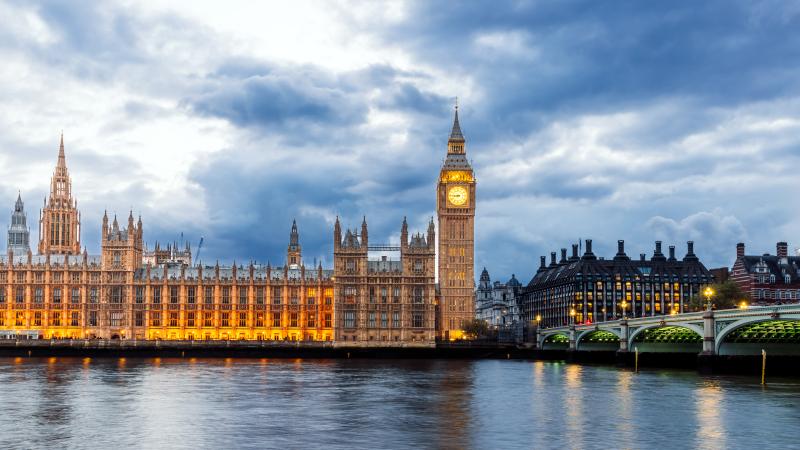Court hears arguments in challenge to Dept. of Energy's natural gas furnace rules
The American Gas Association has mounted a legal challenge to the U.S. Department of Energy’s final Consumer Furnace Rule, establishing new standards for residential furnaces to make them more energy efficient.
A decision in a lawsuit that would impact homeowners with natural gas furnaces nationwide could come next spring or early summer.
The American Gas Association has mounted a legal challenge to the U.S. Department of Energy’s final Consumer Furnace Rule, establishing new standards for residential furnaces to make them more energy efficient.
That new rule would eventually marginalize noncondensing furnaces that aren't as energy efficient and make newer furnaces mandatory in 2028.
On Thursday, AGA, in collaboration with other trade associations and organizations, presented oral arguments before the Court of Appeals for the District of Columbia Circuit in AGA v. DOE.
AGA’s chief regulatory counsel for energy, Matthew Agen, told The Center Square in a Tuesday interview that his organization doesn’t believe DOE is complying with the rules. He cited the Energy Policy and Conservation Act, which prohibits efficiency standards that eliminate entire product classes.
“This rule is very onerous to gas consumers because what it really will do is limit the ability of customers to access natural gas furnaces,” Agen said, explaining the DOE rules raise energy efficiency requirements for all natural gas furnaces.
DOE expects that updating furnace efficiency standards will, over 30 years, cut carbon emissions by 332 million metric tons, roughly equivalent to the combined annual emissions of 42 million homes, or approximately 34 percent of homes in the United States, and methane emissions by 4.3 million tons.
According to a news release from AGA, the only natural gas furnaces capable of complying with the new rule are condensing furnaces. Due to physical limitations, these furnaces are often difficult or impossible to substitute in place of conventional, noncondensing models. Consumers who currently rely on noncondensing furnaces would be forced to remodel their homes or businesses to accommodate a condensing appliance or abandon natural gas appliances altogether in favor of electric appliances.
“It means the furnace has to be vented in a certain way, out the top of your house, and then also with condensing, there’s a lot of water vapor, so it needs a drain,” Agen said.
“Noncondensing products account for between 50%-and-60% of furnaces purchased annually,” he continued. “If you need to replace a noncondensing furnace with a condensing one, you have to get a contractor to come do it and get someone to do the up-venting and someone to do the drainage.”
AGA thinks DOE is relying on the fact most people won’t go through the hassle.
“They are assuming people won’t want to go to all that trouble,” Agen said, “so they’ll just put in electric, and it will push people that way.”
According to AGA's news releases, the final furnace rule also fails to meet EPCA’s standard of being “economically justified.”
The news release goes on to say, “According to DOE’s own analysis, the average consumer would save only a handful of dollars each year, with some customers taking almost a decade to recover their replacement costs.”
An AGA study found that natural gas used in a baseline new home costs $1,132 less per year than an equivalent all-electric household.
DOE, according to AGA, has another rule pending related to natural gas-powered water heaters.
“DOE’s applying their same logic with regard to condensing and noncondensing that would ban a particular kind of natural gas water heater from the market,” Agen said.
Pushback to the move away from natural gas was evidenced in Washington state, where Initiative 2066 was passed on Nov. 5.
I-2066 requires utilities to provide natural gas service to any person or business who requests it and bans the Washington Utility and Trade Commission from approving multi-year rate plans that require or incentivize terminating natural gas service.
The initiative was initiated in response to the passage of House Bill 1589, which aimed to speed Puget Sound Energy’s transition away from natural gas.
“It has been in the current [Biden] administration, a whole of government approach to attempt to limit access to natural gas,” Agen said. “DOE has been using the efficiency standards to basically limit people’s access to natural gas and push people to electric.”
That may change, he said, when former President Donald Trump takes office in January.
“For rulemakings in the pipeline, we anticipate some change, whether that’s a pause or it could be stopping,” Agen said. “But with this case already before the court, it’s kind of unclear. Our goal is to win, obviously, but if we don’t win, I can see us challenging the whole court of appeals en banc.”
He concluded, “Depending on what happens there we would evaluate a potential Supreme Court option.”














